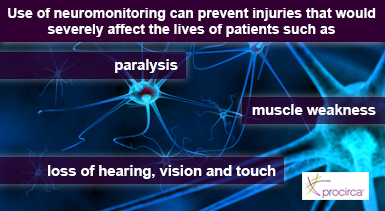Requirements for Bachelor of Science in Behavioral Neuroscience with concentration in Intraoperative Neurophysiological Monitoring:
Candidates must satisfy all requirements for the Bachelor of Science degree in Behavioral Neuroscience. Senior Experience/capstone is waived as it will be fulfilled by clinical coursework at UPMC. Intraoperative Neuromonitoring coursework is determined by UPMC Procirca’s Center for Clinical Neurophysiology.
Eligibility for program:
Along with meeting UPMC Procirca’s Center for Clinical Neurophysiology’s admission requirements, students must meet Carlow University’s prerequisites for approval and recommendation to enter the program including:
- science course GPA of 3.0 or higher
- overall GPA of 3.0 or higher
- the recommendation of science faculty and/or advisor based on demonstrated integrity and excellence in academic pursuits.
Transfer students must have an overall and science course GPA of 3.0 to be considered for the program.
NOTE: CARLOW UNIVERSITY DOES NOT GUARANTEE ADMISSION TO THE INTRAOPERATIVE NEUROMONITORING PROGRAM. ADMISSION IS ON A COMPETITIVE BASIS.
Courses
NEU 221 Neurophysiology:
Neurophysiology is a one-semester undergraduate-level hybrid course designed to provide students in Behavioral Neuroscience tracks with an overview of neurophysiology and current topics in neuroscience. The course will also introduce basic research and diagnostic techniques used to investigate the nervous system. Attention will be given developing analytical and communication skills necessary to investigate and report on topics in the field. This is a four-credit course with three hours of lecture instruction and two hours of lab instruction per week.
Neuromonitoring Fundamentals:
This one-semester undergraduate course is designed to introduce the equipment and modalities used in IONM to students who are preparing for a career in neuromonitoring. Emphasis will be placed on reading, evaluating, and presenting scientific journal articles. Students are also required to complete a research project that makes use of IONM equipment, and submit a final paper. This is a four-credit course with three hours of lecture instruction and two hours of lab instruction per week.
Introduction to Neuromonitoring for Surgical Procedures:
Students learn from hands on experience in the operating rooms of UPMC hospitals during basic surgical procedures. Each student is paired with a preceptor who provides instruction on how to set-up for, and perform the different neuromonitoring modalities used in the specific surgical procedure being performed. Outside of the operating room, students participate in didactic lectures and case review sessions.
Neuromonitoring for Advanced Surgical Procedures:
Students learn from hands on experience in the operating rooms of UPMC hospitals during more complex surgical procedures that require multiple IONM modalities. Each student is paired with a preceptor who provides instruction on how to set-up and perform multi-modality IONM. During this course, students will be assessed for how well they make the transition from being passive observers to active primary providers of IONM.


